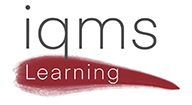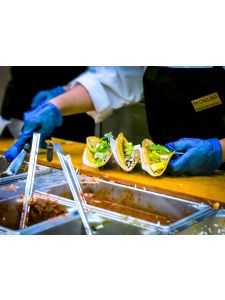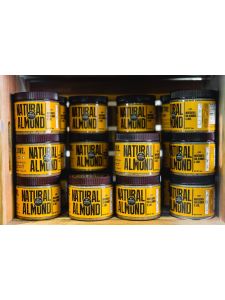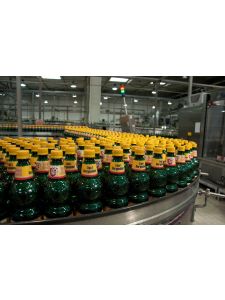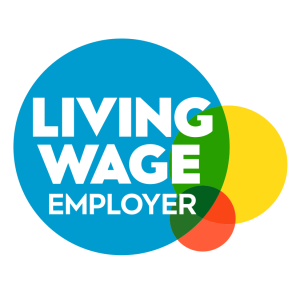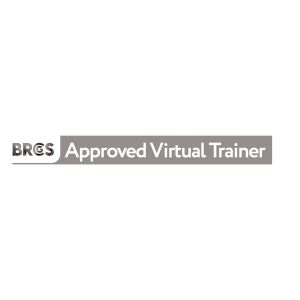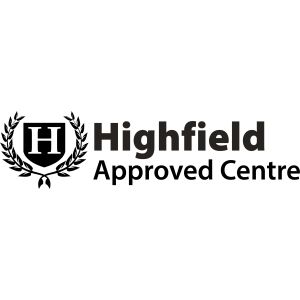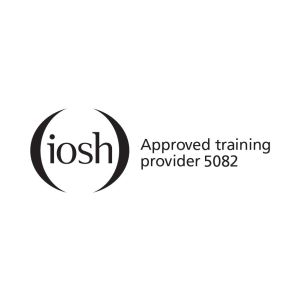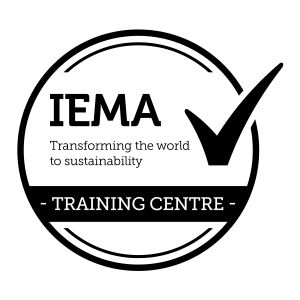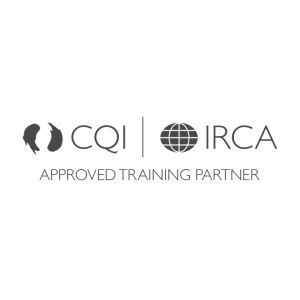Based on the leading global food safety standard, this highly interactive two-day training programme is designed for those people who require a sound understanding of the techniques and principles of food safety auditing. It also covers the role of the food safety auditor in the development and improvement of an effective food safety management system. This course is essential for those who will undertake internal food safety audits, or who will be required to plan, manage and implement internal audit programmes.Duration2 Days, 09.00 – 17.15Who should attend?This course is ideal for food industry personnel intending to become involved in the internal audit process for the maintenance and improvement of their food safety programmes including those: Involved in auditing the site HACCP program or external suppliers Intending to become involved in the internal audit process for the maintenance and improvement of their site’s food safety management system. Typical roles include Quality Assurance Managers, Supervisors and internal audit team members. The audit principles and techniques developed in this course can be applied to any food safety management standard.Course objectivesTo understand the audit process and be able to plan, perform and report the results of internal food safety audits with the aim of developing and improving the food safety management system of an organisation. To help delegates to understanding best practice for ensuring successful internal audits.Course content Introduction to auditing food safety management systems This course is based on ISO 22000, BRCGS and other GFSI recognised standards Audit preparation including audit scheduling, audit planning and audit checklists Performing the audit including opening meetings,non-verbal communications, question techniques, resolving conflict and gathering objective evidence. Presentation of audit findings including the evaluation of audit findings, non-conformity classification, corrective action requests, developing an audit report, closing meeting and root cause analysis. Follow up activities Key to successful internal audits What are the benefitsUpon successful completion of the course delegates will be equipped with the technical skills and knowledge required to plan, conduct and report internal food safety audits. Delegates will also find the interactive nature of the course, it’s challenging content and extensive use of team-based exercises stimulating and surprisingly enjoyable. The knowledge and skills developed in the course can be applied to internal audits of any food safety management standard. Delegates can apply for certification as a CQI and IRCA Certified Internal Auditor if they have also completed an FSMS Foundation Course or can prove equivalent knowledge when applying.In-House CoursesOffering better value for money, they can be designed to closely match your specific requirements.Style of Delivery and Course LeadersOur course leaders have unrivalled management systems design and improvement experience. They are qualified and experienced auditors with extensive practical management experience across a wide range of sectors including manufacturing, finance, pharmaceuticals, local and national government. We have extensive experience working across cultural boundaries, through our work in Europe, Africa, the Middle East, Asia and the AmericasCertificationDelegates successfully completing the course will be awarded a CQI and IRCA Certified training accredited certificate. (2340)

Food Safety Courses
Our food safety courses consist of a wide range of essential learning within the industry from understanding, developing, or managing an effective HACCP plan to auditing your Management System. Third-party awarding bodies such as Highfields, the Chartered Quality Institute, and the International Register of Certificated Auditors (CQI and IRCA), and BRCGS offer industry-wide recognition in learning and are highly respected as contributors to competence.
This practical workshop based course is for those intending to acquire the competencies to audit an organisation's entire Food Safety Management System (FSMS) to meet the requirements of the FSSC 22000 scheme, either as a third or second-party auditor. The Food Safety System Certification 22000 (FSSC 22000) includes a complete certification Scheme for the auditing and certification of a Food Safety Management Systems (FSMS). The scheme was developed through extensive and open consultation with many global stakeholders and uses international and independent standards such as ISO 22000, ISO 9001, ISO/TS 22003, and technical specifications for sector-specific Pre-Requisite Programs (PRPs), such as ISO/TS 22002-1. The FSSC Scheme cover sectors where a technical specification for sector PRPs has been developed and follows the food chain category description as defined in ISO/TS 22003 This intensive, challenging and highly interactive CQI and IRCA Certified training program is for those people who require an in-depth understanding of the knowledge and skills required to perform second and third-party audits of a FSMS against FSSC 22000 or ISO 22000. Many of the skills acquired on this course can be applied to auditing other Food Safety Management Systems.Please note - If you are looking for a public course and your initial interest is ISO 22000, the FSSC 22000 Lead Auditor course may still be suitable as the course covers ISO 22000 with additional food safety requirements.Duration5 Days, 08:30 – 17:00 (Days 1 to 4) 08:30 – 15:30 (Day 5) (Online Exam)Who should attend? This IRCA Certified FSSC 22000 Lead Auditor (FSMS) training course satisfies the training requirements for those who wish to register as a food safety management system lead auditor with the CQI and under the food safety auditor scheme Food safety professionals with a responsibility to design, implement and manage a Food Safety Management System that meets the requirements of FSSC 22000 or ISO 22000 Food safety auditors who have been looking to enhance their auditing knowledge and skills or looking to achieve formal recognition for their skills and knowledge. Auditors, from any Organisation in the food chain, who need to lead audits and audit teams, both in their own Organisation and in others, such as suppliers, where there is a requirement to audit Food Safety Management Systems against FSSC 22000 or ISO 22000 Course objectivesIt is ESSENTIAL that those attending this course have the following prior knowledge: Knowledge of the principles of food safety management including pre-requisite programmes and HACCP It is RECOMMENDED that those attending this course have the following prior knowledge: The relationship between food safety management and the provision of safe food Awareness of common examples of relevant national and local FSMS legislation (in the food sector and country relevant to the delegate) Knowledge of the requirements of FSSC 22000, ISO/TS 22002 and the commonly used food safety management terms and definitions as given in FSSC 22000 The Plan, Do, Check, Act (PDCA) cycle Course content PDCA cycle and its use within an FSMS THE FSSC standard (ISO 22000, ISO 22002 pre-requisite standards and FSSC additional requirements. Terms and definition used in FSSC 22000 and ISO 22000 FSMS Documentation ISO 19011/ ISO17021 and auditing 1st, 2nd, and 3rd party audits Benefits of third-party accredited certification The audit processes Selecting an audit team Stage1, Stage 2, surveillance, unannounced and recertification audits Auditor responsibilities and competencies Planning and conducting an audit Auditing Food Safety Management System requirements Generating audit findings and nonconformities Reporting and following up of an audit What are the benefitsThis practical workshop based course is designed to develop the knowledge and competencies needed to perform an audit of a FSMS. The course will also develop delegates’ wider understanding of food safety management systems design and implementation and understand how HACCP must be embedded into the Food Safety Management System of an organisation for it to be effective. Successful completion of the course and the achievement of the 50% pass mark will satisfy the formal training requirements for those wishing to register as an Auditor, Lead Auditor or Principal Auditor with CQI and IRCA Certified training under the food safety auditor scheme.In-House CoursesOffering better value for money, they can be designed to closely match your specific requirements.Style of Delivery and Course LeadersOur course leaders are professional practitioners in the food sector, as well as being qualified, registered, and experienced auditors. They have extensive knowledge across a wide variety of food industry organisations such as primary food processing, food manufacturing, retailing, and catering. They have cut their teeth within high profile organisations, and fully understand the range of technical, legislative and people challenges that face those with a responsibility for delivering robust food safety management systems and customer confidence.CertificationDelegates successfully completing the course, including the examination will be awarded a CQI and IRCA training accredited certificate. (2682)
This Understanding and Implementing Threat Assessment & Critical Control Points (TACCP) and Vulnerability Assessment & Critical Control Points (VACCP) one day course is based on the requirements of PAS 96:2017 ‘Guide to protecting and defending food and drink from deliberate attack’.The purpose of PAS 96:2017 is to guide food business managers through approaches and procedures intended to improve the resilience of supply chains to fraud or other forms of attack. These include economically motivated adulteration, malicious contamination, extortion and counterfeiting. It aims to assure the authenticity and safety of food by minimizing the chance of an attack and mitigating the consequences of a successful attack. This course covers TACCP as a framework which can be applied to assess both threats from ideologically motivated actors (TACCP) or food fraud (vulnerability of raw materials) from economically motivated attacks (VACCP)Duration1 Day, 09.00 – 16.30Who should attend? Senior Management and their representatives Technical and Quality Managers Those considering implementing a Global Food Safety Initiative (GFSI) approved FSMS in their organisation Auditors Trainers and Consultants Course objectivesDelegates will learn the tools and techniques needed to assess hazards and risks to business, process and product. TACCP provides a process for the identification, evaluation and mitigation of threats that are faced on and off the manufacturer’s site. Upon successful completion of this course, participants should be able to: Understand the difference between HACCP / TACCP / VACCP Recognise the different types of threats Classify the different types of aggressors Develop a TACCP / VACCP system Course content PAS 96:2017 & TACCP – Terms & Definitions The difference between threat and vulnerability assessments Introduction to Vulnerability and Threat Assessment Critical Control Point (TACCP) How Threat Assessment tools can be used for Vulnerability Assessment Conducting a TACCP Study Conducting the Threat Assessment The different requirements contained within GFSI recognised standards Style of Delivery and Course LeadersOur course tutors are approved training providers, approved by BRCGS, IRCA, RSPH and IEMA. They are qualified and experienced with extensive practical knowledge across a wide range of sectors including food manufacturing, catering and retail.CertificationAll delegates will be awarded a certificate verifying attendance and completion of the course.
Culture has been widely seen as both the cause of many Food Safety shortcomings and the solution to ensuring consistently high standards of Product Safety in Food and associated industries. From Retail to Manufacturing, in all sectors of the Food & Drink industry, establishing and demonstrating a good Product Safety culture is now seen as a fundamental requirement to reputable organisations. Attending this 1-day course participants will gain a fundamental understanding of the importance of a positive product safety culture, the critical issues that affect it and how to begin the development process to establish of positive culture within your organisation.Duration1 Day, 08.45 – 18.00Who should attend?Consultants/Auditors/Technical/HR/Senior Management who lead on culture, Operational, Technical & Quality staff, BRCGS & Industry Professionals or anyone involved in implementing and maintaining Product Safety Culture.Course objectives Describe the concept of Product Safety Culture and why a positive culture is important to ensuring product safety and integrity Identify what the standards require, and the function of the Product Safety Culture Plan within a QMS Recognize the link between behaviour and Product Safety Culture and how it underpins product safety assurance Discuss how to measure an organisation's Product Safety Culture through the use of tools and techniques Develop a sustainable Product Safety Culture action plan and how to engage staff to support it Course content The criticality of Food Safety Culture The role of senior management The impact of attitudes and behaviours Developing your own Product Safety Culture Plan What are the benefitsThis BRCGS course is industry-focused, considering organisational culture, leadership and behavioural concepts; inclusive of and generic to all BRCGS Global Standards, in addition to the global market for application to any manufacturing facility - regardless of business size or whether sites have a product scope of food or non-food related goods/ servicesIn-House CoursesOur course tutors are Approved Training Providers for BRCGS. They have extensive practical experience across a wide range of sectors including manufacturing and retail.Style of Delivery and Course LeadersAvailable on an in-house basis use this course to deliver a consistent message across your teams.CertificationTo complete the course, participants will need to submit a product safety plan as a workplace assignment, meeting the assessment criteria with 75% as a passing grade. Delegates successfully completing the course will be awarded a BRCGS Certificate issued by the BRCGS.
The Highfields Level 4 award course is designed to allow the learner to understand the importance of how to develop, implement and evaluate CODEX based HACCP food safety management procedures.Duration5 Days, 09.00 – 17.15Who should attend?This course is aimed at learners who are working at management level within food manufacturing and catering environments, quality assurance staff or members of the HACCP team. This qualification would also be useful for trainers, auditors, enforcers and other food safety professionals.Course objectivesThe objective of the qualification is to give delegates the skills to lead in the development and implementation of a HACCP system, to critically evaluate HACCP plans and to understand the importance of having an effective HACCP system in place.Course content HACCP and Legislation Preparing for HACCP Pre-requisite Programmes The 7 Codex HACCP Principles HACCP Documentation Critical Control Points Critical Limits Monitoring Corrective Action Maintaining HACCP The HACCP Team Hazard Analysis Implementation Verification Validation Review What are the benefitsOn successful completion, delegates will have a good awareness of HACCP legislation and principles and will understand: The Importance of HACCP based food safety management procedures How to manage the implementation of HACCP based food safety management procedures How to develop and evaluate HACCP based food safety management procedures Style of Delivery and Course LeadersOur course tutors have substantial experience in the understanding of HACCP and related legislation. They are qualified and experienced with extensive practical knowledge across a wide range of sectors in manufacturing, catering and retail.CertificationDelegates successfully completing the Highfields Level 4 Award in HACCP for Management (CODEX Principles) (RQF) course and examination will be awarded a Highfields Qualifications certificate. Qualification Number: 603/2731/5 The RQF is a qualification framework regulated by Ofqual. It is also suitable for delivery in Wales and is regulated by Qualifications Wales.
The new course covers changes introduced to Food Labelling requirements by the 2011 European Directive on the provision of food information. It explains the transitional arrangements on the new rules. These new requirements will have a major impact upon the information provided on food labels for consumers. The course is designed to provide candidates with the knowledge of the changes to help food manufacturers prepare for and comply with the law.Duration1 Day, 09.00 – 17.00Who should attend?The course is intended for Quality/Technical Managers and personnel as well as Label Designers and Food Marketing staff.Course objectivesThis course explains the New Food Labelling Legislation in force from December 2014.Course content Introduction to Food Labelling Current Legislation Food labelling Regulations Key changes Labels – current & New rules Origin labelling Responsibilities – Food Business Operators Understand how communication can reduce the risk of adverse reactions. What are the benefitsOn successful completion, delegates will have improved understanding the new Food Labelling Legislation. Delegates will also be able to identify any current weaknesses in their labelling systems and update these in line with the new laws.Style of Delivery and Course LeadersOur course tutors have substantial experience in the field of Food Law. They are qualified and experienced with extensive Food Law experience across a wide range of sectors including manufacturing and retail.CertificationAll delegates will be awarded a certificate verifying attendance and completion of the course.
The Highfields Level 2 Award in HACCP for Food Manufacturing (RQF) is aimed at those working in a food manufacturing environment. The qualification is intended for delegates already working in food manufacturing and those who are preparing to work in the industry. This qualification covers the principles of HACCP including the procedures required to develop HACCP and how the principles are applied in a food production environment.Duration1 Day, 09:30 – 17:00Who should attend?The Level 2 Certificate in HACCP is appropriate for all persons employed in food and food related businesses that need to have an understanding of HACCP principles.Course objectivesThe objective of the qualification is to support those who are, or will be part of a HACCP (hazard analysis and critical control points) team within a manufacturing environment.Course content Introduction to HACCP Prerequisite programs Intended use of products Process flow diagrams Hazard analysis Determining Critical control Points Determining Critical limits HACCP Monitoring Corrective actions Verification and validation HACCP Documentation HACCP Review What are the benefitsOn successful completion, delegates will have a good awareness of HACCP principles. Delegates will be able to identify the procedures required to develop HACCP and understand how the principles are applied in a food production environment.Style of Delivery and Course LeadersOur course tutors have substantial experience in the understanding of HACCP and related legislation. They are qualified and experienced with extensive practical across a wide range of sectors in manufacturing, catering and retail.CertificationDelegates successfully completing the Highfields Level 2 HACCP for Manufacturing (RQF) course and examination will be awarded a Highfields Qualifications certificate. Qualification Number: 603/2196/9 The RQF is a qualification framework regulated by Ofqual. It is also suitable for delivery in Wales and is regulated by Qualifications Wales.
Increasing numbers of individuals suffer adverse reactions every year from the ingestion of allergens in food. This qualification is aimed at learners responsible for the purchase, delivery, production and service of food in the catering industry. It is also suitable for those owning/managing a smaller catering business.Duration1 Day, 09.00 – 17.00Who should attend?Managers, Supervisors or Staff with a responsibility for Food Service Safety and Quality.Course objectivesLearners achieving this qualification will have knowledge and understanding relating to the control of food ingredients, including allergens, at all stages of food purchase and production.Course content Understand the manager’s role in ensuring that food ingredients and allergens are effectively managed Understand procedures relating to the communication of ingredient information from supplier to consumer Understand the importance of implementing practical controls to prevent contamination and cross contamination from allergenic ingredients Understand methods for managing ingredient controls and procedures What are the benefitsThis qualification is supported by Allergy UK, who regard it as suitable staff training for catering outlets that wish to apply for their Allergy Aware Scheme.Style of Delivery and Course LeadersOur course tutors have substantial experience in the field of allergen management and control. They are qualified and experienced with extensive practical knowledge across all areas of the food industry.CertificationDelegates successfully completing the HABC Level 3 Award in Allergen Management for Catering (RQF) course and examination will be awarded a Highfield Qualifications certificate. Qualification Number: 603/1720/6 The RQF is a qualification framework regulated by Ofqual. It is also suitable for delivery in Wales and is regulated by Qualifications Wales.
Aimed at all organisations in the food and feed industries, regardless of size or sector ISO 22000:2018 translates Food Safety Management into a continuously improving process. It takes a precautionary approach to food safety by helping to identify, prevent and reduce foodborne hazards in the food and feed chains. The 2018 version brings clarity of understanding and offers a dynamic control of food safety hazards combining the following generally recognised key elements: interactive communication, systems management, Prerequisite Programmes (PRPs) and the principles of Hazard Analysis and Critical Control Points (HACCP). This intensive, challenging and highly interactive CQI and IRCA Certified training program is for those people who require an in-depth understanding of the knowledge and skills required to perform first, second and third-party audits of Food Safety Management Systems (FSMS) against ISO 22000. Many of the skills acquired on this course can be applied to auditing other Food Safety Management Systems.Please note - If you are looking for a public course and your initial interest is ISO 22000, the FSSC 22000 Lead Auditor course may still be suitable as the course covers ISO 22000 with additional food safety requirements.Duration5 Days, 08:30 – 17:30 (Days 1 to 4) 08:30 – 15:30 (Day 5)Who should attend?This course satisfies the training requirements for those who wish to register as a food safety system lead auditor with the CQI and IRCA Certified training under the food safety auditor scheme Food safety professionals with a responsibility to design, implement and manage a Food Safety Management System that meets the requirements of ISO 22000 Food safety auditors who have been looking to enhance their auditing knowledge and skills or looking to achieve formal recognition for the skills and knowledge that they possess. Auditors, from any organisation in the food chain, who need to lead audits and audit teams, both in their own organisation and in others, such as suppliers, where there is a requirement to audit Food Safety Management Systems against ISO 22000Course content PDCA cycle and its use within an FSMS Terms and definition used in ISO 22000 pre-requisite standards Maintaining and retaining documented information The relationship between ISO 22000 & ISO 22002 series of pre-requisite standards 1st, 2nd and 3rd party audits Benefits of third party accredited certification The audit processes Auditor responsibilities Planning and conducting an audit Auditing Food Safety Management System requirements Generating audit findings Reporting and following up the audit Discuss the content and relationship of FSSC with ISO 22000 Discuss the broadened pre-requisites of ISO 22000 and the additional requirements to meet GFSI recognised certification What are the benefitsThis course is designed not only to help people perform food safety audits, but also to develop delegates’ wider understanding of food safety management systems design and implementation. It will help delegates understand how HACCP can be embedded into the Food Safety Management System of an organisation. Successful completion of the course and the achievement of the 50% pass mark will satisfy the formal training requirements for those wishing to register as an Auditor, Lead Auditor or Principal Auditor with CQI and IRCA Certified training under the food safety auditor scheme.In-House CoursesOffering better value for money, they can be designed to closely match your specific requirements.Style of Delivery and Course LeadersOur course leaders are professional practitioners in the food sector, as well as being qualified, registered and experienced auditors. They have extensive knowledge across a wide variety of food industry organisations such as primary food processing, food manufacturing, retailing and catering. They have cut their teeth within high profile organisations, and fully understand the range of technical, legislative and people challenges that face those with a responsibility for delivering robust food safety management systems and customer confidence.CertificationDelegates successfully completing the course, including the examination will be awarded a CQI and IRCA training accredited certificate. (2339)
The principals of HACCP qualification is aimed at those responsible for assisting in the development and maintenance of HACCP systems in a food manufacturing environment and food businesses, i.e. managers and supervisors.After the completion of the course, the holders of this qualification will have the appropriate knowledge and understanding to be an integral part of hazard analysis and critical control point team and to supervise the implementation of a HACCP based system in the work environment.Duration2 Days, 09.00 – 17.00Who should attend?This qualification is aimed at those responsible for assisting in the development and maintenance of HACCP systems in a food manufacturing environment.Course objectivesThe objective of this qualification is to provide learners with the knowledge necessary to be an integral part of a HACCP team in manufacturing and other related industries, for example those involved in distribution and storage. The qualification is primarily aimed at learners who are already working in food manufacturing with knowledge of food hazards and controls. However, it will also be of benefit to caterers and retailers.Course content Determining Critical limits HACCP Monitoring Corrective actions Verification and validation HACCP Documentation HACCP Review Determining Critical control Points Introduction to HACCP Prerequisite programs Describing the product Intended use of products Process flow diagrams Hazard analysis What are the benefitsOn successful completion, delegates will have a good awareness of HACCP legislation and principles and will: Understand the importance of HACCP based food safety management procedures Understand the preliminary processes for HACCP based procedures Understand how to develop and implement HACCP based food safety management procedures Understand how to verify HACCP based procedures In-House CoursesOffering better value for money, they can be designed to closely match your specific requirements.Style of Delivery and Course LeadersOur course tutors have substantial experience in the understanding of HACCP and related legislation. They are qualified and experienced with extensive practical knowledge across a wide range of sectors in manufacturing, catering and retail.CertificationDelegates successfully completing the Highfield Level 3 HACCP Award in Food Manufacturing (RQF) course and examination will be awarded a Highfield Qualifications certificate. Qualification Number: 603/2231/7 The RQF is a qualification framework regulated by Ofqual. It is also suitable for delivery in Wales and is regulated by Qualifications Wales.
The Highfields Level 3 Award in Food Safety Management for Manufacturing is a qualification aimed at learners who are at, or wish to progress to, a higher or supervisory level within a food manufacturing business and who need a comprehensive understanding of food safety.Duration3 Days, 9:00 –17:00Who should attend?This qualification is aimed at supervisors, team leaders and line managers in production or quality in food manufacturing or storage and distribution.Course objectives Understand the requirements for ensuring compliance with food safety legislation Understand the application and monitoring of good personal hygiene practice, training and competency Understand the application and monitoring of good practice to keep work areas clean hygienic and free from pests Understand the application and monitoring of good practice regarding contamination microbiology and temperature control Course content Ensuring compliance with food safety legislation The application and monitoring of good hygiene practice How to implement food safety management procedures The application and monitoring of good practice regarding contamination, microbiology and temperature control What are the benefitsThe course will provide delegates with a knowledge and understanding of food safety principles and practices, and will enable candidates to identify problem areas and to recommend solutions.Style of Delivery and Course LeadersOur course tutors have substantial experience in the understanding and implementation of food safety controls, HACCP and related legislation. They are qualified and experienced with extensive practical knowledge across a wide range of sectors in manufacturing, catering and retail.CertificationDelegates successfully completing the Highfields Level 3 Award in Food Safety in Manufacturing (RQF) course and examination will be awarded a Highfields Qualifications certificate. Qualification Number: 603/2088/6 The RQF is a qualification framework regulated by Ofqual. It is also suitable for delivery in Wales and is regulated by Qualifications Wales.
Our courses will teach the delegates the knowledge and skills required to assess, develop and improve their businesses, processes and products. Our course tutors are Approved Training Providers for many awarding body organisations. They are qualified and experienced professionals who have worked in a variety of industries, including food manufacturing, catering, and retail. Those who complete and pass our courses will return to their workplace with the confidence that competence will bring.
We have extensive experience in developing bespoke training and coaching, designed to enhance the capability of your people to drive Management System improvement programmes and manage risks with confidence at all levels to achieve managed sustainable results.
Contact us to discuss how we can help you.
